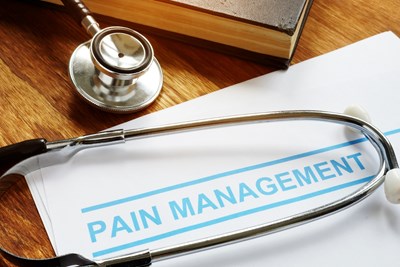The opioid epidemic is ravaging families across our country. Over 232,000 people died from prescription opioid overdose between 1999 and 2018, according to the CDC. Many lives are lost every day and chances are that you know someone who has died or had their life immeasurably affected by this public health crisis.
As much as we wish for everyone to be pain and anxiety-free, it is not always possible. Prescription medications used for legitimate medical issues, as prescribed by doctors, are a great benefit to the patient and society. But when they are misused, unintentionally or otherwise, they can be a prescription for health complications, addiction or even death.
Here are several safety tips to follow when you're prescribed a medication:
- Take medications only as prescribed. There is a fine line between a medication being helpful and being a poison. No extras. More is not better.
- Do not share your medication. While your intentions may be good, you may be hurting, not helping. Also, you may be committing a crime by sharing - these are federally controlled medications.
- Use only one doctor and one pharmacy for coordinating your medications. Many patients have different doctors – primary care, psychiatrist, and surgeon, but there must be one that is coordinating the medication and making sure there are no drug interactions. Do not allow your doctors to practice in a silo, each time you are prescribed a medication, make sure it can be taken safely with the other ones you are taking.
- Beware of sleeping pills and Benadryl. Sleep aids depress your central nervous system and have an additive effect on painkillers and anxiety medications. Sleep aids stop being effective after continued use. If you use sleep aids every single day, the medication is bringing you more risk than benefit. It is best to use non-medication methods of getting sleep when necessary.
- Avoid being on pain and anxiety medications at the same time. Many people are anxious and in pain, but that does not take away from the risk this combination causes.
- Discuss any perceived physical or mental changes with friends, loved ones or a medical professional. Do not assume that because you have been taking your medication for years that they are safe. Sometimes your family and friends can see changes in you that you cannot see, ask them about it. Also, ask your doctor to review your medications if you are on high dosages of pain medications.
- Beware of time lapses between dosages. If you were on a certain high dosage of pain medication for a long time, then stopped, you cannot go back to the same high dose. Your pain receptors adjust, and many people die assuming they can “handle” the dosage they had before.
- Consider alternatives to pain medications. It is important to understand your pain, have realistic expectations of pain management, and use alternative methods of care besides prescription medication when appropriate. Some of these include ice, heat, massage, acupuncture, electrical stimulation units, psychosocial treatment, acetaminophen or ibuprofen.
 American College of Emergency Physicians
American College of Emergency Physicians







